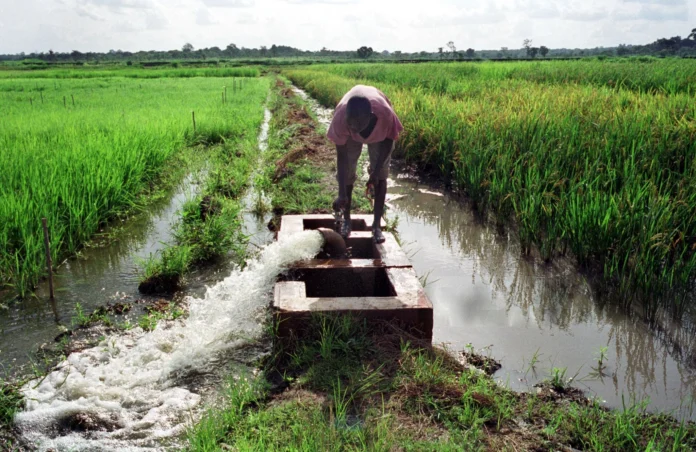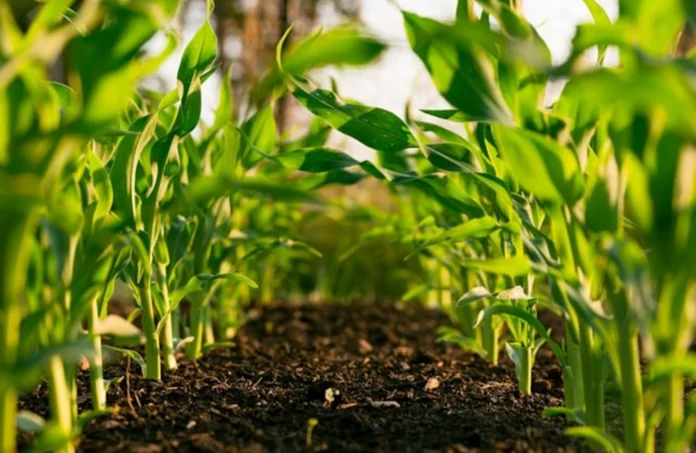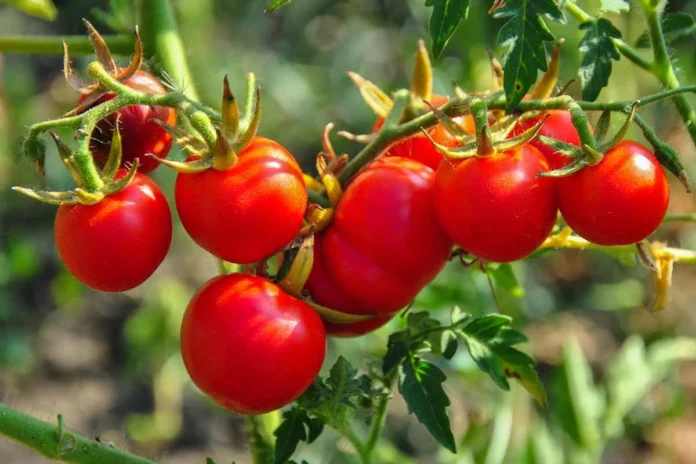Arabfields, Mostaganem, Algeria — In a significant stride toward modernizing Algeria’s rural economy, the Sonelgaz Distribution Directorate in Mostaganem has connected 583 agricultural farms to the national electricity grid since the inception of a nationwide electrification initiative. This effort, which includes the extension of 340.27 kilometers of medium- and low-voltage power lines across the wilaya (province), underscores the government’s commitment to bolstering agricultural productivity and ensuring food security amid ongoing economic reforms.
The program, aligned with directives from Algeria’s highest authorities and strategic recommendations from Sonelgaz’s general management, aims to empower farmers by providing reliable access to electricity, a critical resource for irrigation systems, machinery operation, and post-harvest processing. As of the latest updates, two additional farms are in the process of being connected, responding directly to requests from local agricultural operators. This ongoing expansion reflects a broader national push to integrate remote and underserved areas into the energy infrastructure, fostering sustainable development in one of Algeria’s key agricultural hubs.
Algeria’s agricultural sector, which employs about 25% of the workforce and contributes significantly to the gross domestic product, has long faced challenges such as water scarcity, outdated equipment, and limited energy access. In response, the government under President Abdelmadjid Tebboune has prioritized rural electrification as part of a comprehensive strategy to reduce food imports and achieve self-sufficiency. Sonelgaz, the state-owned electricity and gas utility, serves as the linchpin in this endeavor, executing projects that extend the grid to isolated zones, agricultural perimeters, industrial areas, and activity zones.
Launched in recent years, the initiative has gained momentum, with Sonelgaz announcing plans to connect an ambitious 10,000 farms nationwide in 2025 alone, building on the completion of similar projects in previous years. This aligns with broader economic programs designed to attract agricultural investments by simplifying connection processes and offering incentives, such as waived requirements for advance payments in certain cases. Experts note that such measures not only encourage participation but also stimulate local economies by enabling farmers to adopt modern technologies, thereby increasing yields and reducing operational costs.
In Mostaganem, a coastal wilaya renowned for its fertile plains and production of cereals, fruits, and vegetables, the program has been particularly transformative. The region’s agricultural output plays a vital role in national supply chains, and electrification addresses longstanding bottlenecks. According to industry analysts, reliable power can boost irrigation efficiency by up to 30%, allowing for expanded cultivation and diversified crops in an area prone to climatic variability.
The Mostaganem Directorate’s efforts have accelerated since 2023, when 88 farms were newly connected in coordination with local agricultural services. By mid-2024, the tally had risen to 568 operations, marking a substantial leap in coverage. Updates from late 2024 indicate over 560 farms benefited from these projects, with 12 additional connections completed that year alone. The recent surge to 583 reflects a sustained pace, with works advancing rapidly to encompass all registered farms within the wilaya.
This infrastructure rollout involves intricate engineering, including the installation of transformers, poles, and cabling tailored to rural terrains. The 340.27 km of lines represent a major investment, part of Sonelgaz’s broader portfolio in Mostaganem, which exceeds 28 billion Algerian dinars (approximately $210 million) for various energy projects. Complementing these efforts is the partial commissioning of a massive power plant in Mostaganem, the largest in Algeria, which enhances grid stability and capacity to support growing demands from agriculture and industry.
Local stakeholders have praised the initiative’s strategic importance. Farmers report improved operational efficiency, with electricity enabling the use of pumps for groundwater extraction and cold storage to minimize spoilage. “This is more than just power lines, it’s a lifeline for our livelihoods,” said one anonymous farmer in a regional report, highlighting how the program has encouraged reinvestment in land previously hampered by energy constraints.
Despite the progress, challenges persist. Rural electrification in Algeria often contends with logistical hurdles, such as rugged landscapes and bureaucratic coordination between Sonelgaz, agricultural ministries, and local authorities. In Mostaganem, while the program has streamlined approvals, some farmers in remote daïras (districts) await connections, underscoring the need for continued funding and oversight.
On a national scale, the initiative contributes to Algeria’s food security goals, aiming to curb reliance on imports amid global supply chain disruptions. By modernizing production tools, it positions the agricultural sector as a pillar of economic diversification away from hydrocarbons. Environmental considerations are also emerging, with Sonelgaz exploring hybrid solar integrations in future phases to promote sustainable energy use in farming.
Sonelgaz officials in Mostaganem affirm that the directorate is committed to maintaining a brisk pace, ensuring universal access for all eligible farms. This includes ongoing dialogues with investors to expand participation, as evidenced by the enthusiastic uptake following the program’s facilitations. With national targets set high for 2025, Mostaganem’s model could serve as a blueprint for other wilayas, demonstrating how targeted infrastructure investments can yield tangible gains in productivity and rural prosperity.
As Algeria navigates its path toward economic resilience, initiatives like this electrification program highlight the interplay between energy access and agricultural innovation. In Mostaganem, the glow of newly powered farms signals not just illuminated fields, but a brighter future for the nation’s agrarian heartland.












